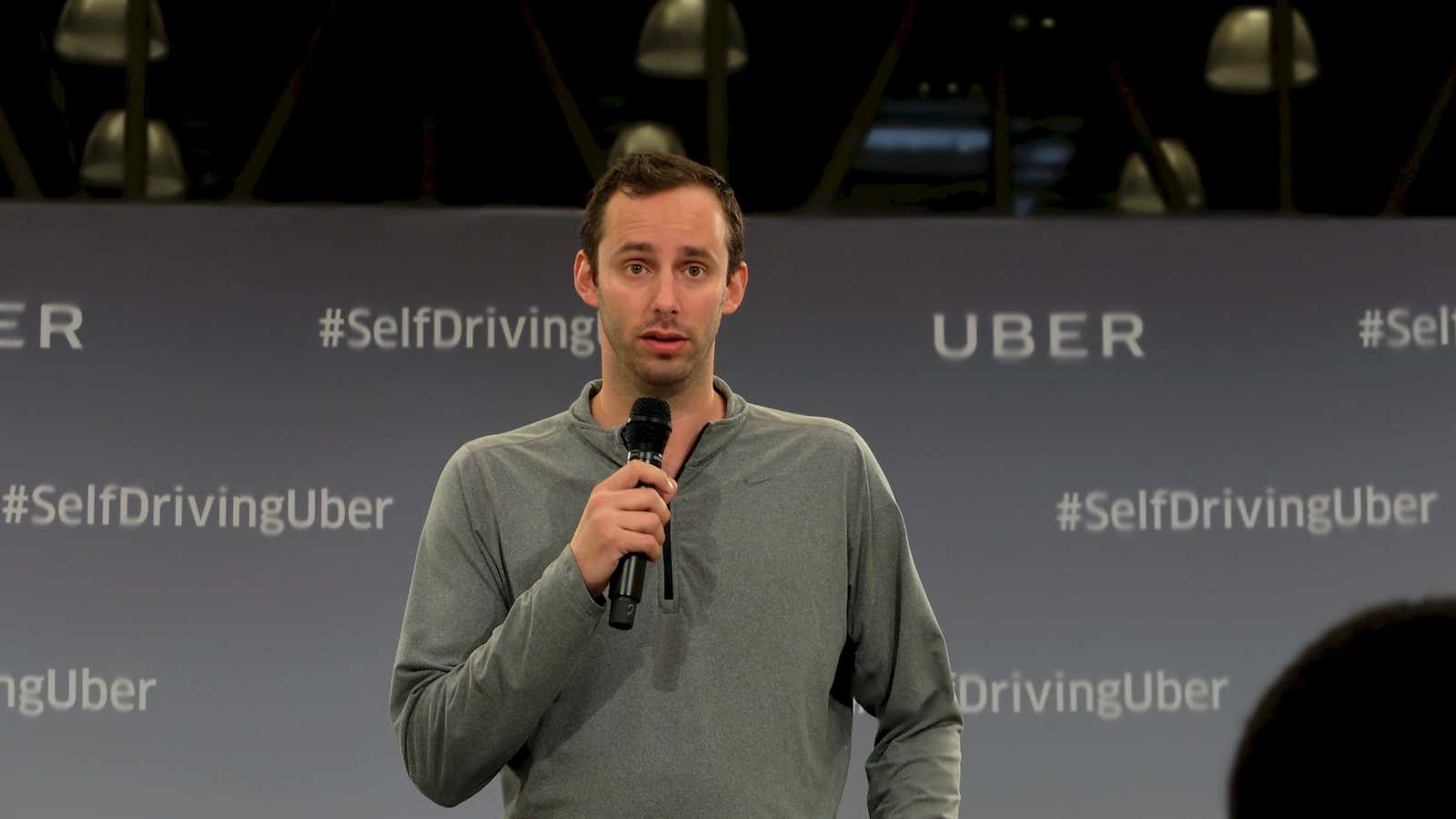Forget the Silicon Valley TV show. The Uber-Waymo lawsuit is higher drama.
Driverless car maker Waymo—owned by Google’s parent company Alphabet—has shown “compelling evidence” that its “former star engineer” stole more than 14,000 confidential files, a federal judge said in a ruling made public today. That engineer, Anthony Levandowski, joined Uber last summer to lead its self-driving car efforts. In a partially granted injunction, the court orders the ride-hailing company to bar him from any work pertaining to “lidar” technology. It also instructs Uber to return the “pilfered” files by May 31 at noon.
Waymo sued Uber in February, alleging theft of trade secrets and, in particular, its in-house lidar, the technology that allows a self-driving vehicle to “see.” It later upped the ante and said Uber colluded with Levandowski to steal proprietary information. (Levandowski quit Waymo in January 2016 to work on a driverless trucking startup, Otto, that was subsequently acquired by Uber for $680 million.) Uber itself had already suspended him from working on lidar technology.
The company last week lost a bid to send its dispute with Waymo to private arbitration, paving the way for a public trial at a time when anti-Uber sentiment is high.
Uber has never denied that Levandowski took more than 14,000 files from Waymo, but has instead claimed it was unable to locate any of those documents on Uber servers. Uber has repeatedly blocked Waymo from digging into its records while Levandowski has broadly invoked the US constitutional privilege of the fifth amendment, which protects against self-incrimination.
William Alsup, the federal judge overseeing the case, has tired of such antics. “Troves of likely probative evidence have been concealed from Waymo under relentless assertions of privilege that shroud dealings between Levandowski and [Uber] in secrecy,” he writes. Alsup is now instructing Uber to come clean. By noon on June 23, he has asked Uber to provide Waymo with a log of all lidar-related communications between Levandowski and other Uber affiliates, ”including, without limitation, conferences, meetings, phone calls, one-on-one conversations, texts, emails, letters, memos, and voicemails.”
Alsup has also directed Uber to open its books to Waymo’s lawyers. His order grants Waymo the right to inspect “any and all” of Uber’s work on lidar, including “schematics, work orders, source code, notes, and emails.” And he has not-so-subtly suggested a way to demand Levandowski’s cooperation in the investigation: threaten to fire him.
“If Uber were to threaten Levandowski with termination for noncompliance, that threat would be back up by only Uber’s power as a private employer, and Levandowski would remain free to forfeit his private employment to preserve his fifth amendment privilege,” Alsup writes. “Uber has no excuse under the fifth amendment to pull any punches as to Levandowski.”
The injunction could have proved worse for Uber. Waymo initially sought to have Uber barred from “making, using, selling, or offering to sell” devices that infringed on its patents. “We are pleased with the court’s ruling that Uber can continue building and utilizing all of its self-driving technology, including our innovation around lidar,” Uber said in a statement.
Over the weekend, meanwhile, Waymo said it will try to get more self-driving cars on the road—by teaming up with Lyft, Uber’s biggest American rival.
